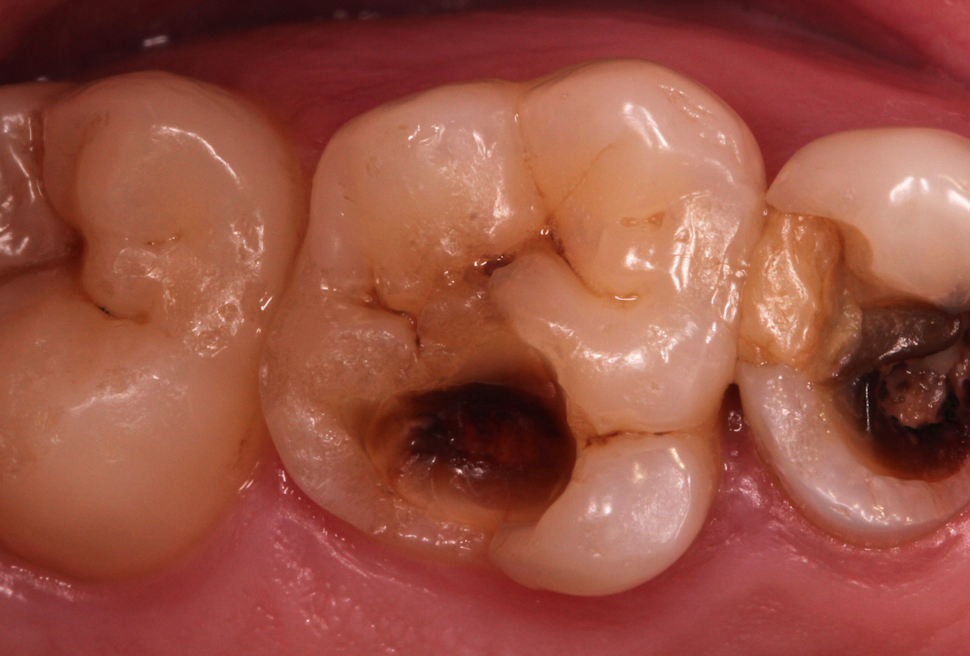Why bad breath?
Many people, trying to understand why their breath smells, attribute this phenomenon to poor oral hygiene.
In some cases, even doctors will not argue with this statement.
But if you believe the statistics, then an unexpected bad breath is often a symptom that a person has hidden pathologies.
It is difficult for physicians to explain to the patient why the mouth smells bad, focusing only on external signs.
Because bad breath can be a symptomatic manifestation of completely different diseases, and not necessarily of a dental nature.
In medicine, bad breath is called halitosis. This concept is regarded as one common symptom that unites the pathologies of various systems of the human body.
Severe bad breath can be observed constantly or appear intermittently. For this reason, a person does not immediately know about the presence of a problem.
But even realizing the situation, many people cannot take it seriously, considering it a temporary phenomenon, and postpone the solution of the problem “why breath stinks” until later.
Symptoms associated with the appearance of fetid odors in the mouth are divided by doctors into 3 categories according to the type of origin:
- physiological;
- pathological;
- pseudo-smell.
The physiological type of stale odor from the oral cavity appears during putrefactive processes of microflora that occur due to a large accumulation of food debris.
Pathological halitosis occurs with inflammatory processes in the oral cavity or on the internal organs.
Pseudo-smell is not a disease, it is rather a psychological reflection of experiences about the return of cured halitosis.
The question of why bad breath should not bother those people who have this problem immediately after waking up and disappear after brushing their teeth in the morning.
Obviously, this is a temporary phenomenon, indicating a weak activity of the salivary glands during sleep.
By itself, the smell of sour or rotten smell is the secretion of microorganisms that live on the oral mucosa and develop by absorbing food debris on the teeth.
A particularly large amount of food deposits accumulate in the back of the tongue.
If a person does not have the ability or desire to constantly monitor the cleanliness of the teeth, tongue and oral mucosa, then an odor with an unpleasant hydrogen sulfide tint appears.
You don’t have to go to the doctor to understand that the cause of bad breath lies in the lack of proper oral care.
It is enough to breathe into the palm of your hand and in a minute bring it to your nose - if there are putrefactive processes, then the smell will definitely appear.
People who adhere to the rules of hygiene and keep the oral cavity clean not only with toothpaste, but also with floss or rinses, the problems of bad breath from the mouth are rarely bothered.
How does lifestyle and habits affect mouth odour?
The human mouth is the main organ for food intake. Due to the anatomical structure of the oral cavity, part of the dietary fiber remains between the teeth and on the tongue.
If they are not removed in time, then the appearance of putrefactive processes, accompanied by bad breath, is guaranteed.
In addition to poor oral hygiene, there are other causes of bad breath caused by human behavior and habits.
The first in the list of owners of bad breath are smokers. It is known that smoking is accompanied by the release of resins, which first of all settle on the teeth and mucous membranes, and only then on the internal organs.
The natural smell of resins is difficult to call pleasant, but in combination with decaying food residues, they become a source of stench.
In addition, smoking products contribute to increased bad breath, as they cause the mucosa to dry out.

As a result, the level of acid-base balance in the oral cavity changes, stimulating the development of microorganisms.
Even an absolutely healthy person can face the problem of bad breath with a certain lifestyle.
For example, followers of intermittent fasting diets should not be surprised why there is bad breath.
The result of dietary restrictions is low blood sugar, which produces ketones in the body. The sweetish-sour smell coming from the mouth is the result of hypoglycemic processes.
Temporarily bad breath may appear after eating certain foods.
In addition to the most famous “flavorings” of the oral cavity, onions and garlic, the use of smoked meats, cheese and meat products, and certain types of vegetables, such as cabbage, is characterized by a rather intense manifestation of stench.
The longest, up to 2 days, are protein products, including dairy products - their components serve as additional food for the reproduction of microorganisms.
If a person consumes an insufficient amount of liquid, then he should be prepared for the fact that stale breath can appear at any time.
The lack of water in the body is often associated with excessive consumption of alcohol, which in itself can increase bad breath.
As a result, the volume of saliva production decreases, and the number of pathogenic bacteria increases.
Pathological sources of bad breath
Dental diseases are among the most common causes of bad breath.
For example, caries is always accompanied by the destruction of the tooth surface and the formation of cavities in which dietary fiber accumulates. The reproduction of microorganisms in such foci occurs very quickly.
Along with tooth decay, gum disease contributes to bad breath. The mechanism of development of the pathology is the same - dietary fibers remain between the gums and teeth and become a source of bacteria and putrefactive odor.

Throat diseases are accompanied by bad breath for many reasons, but the main one is an increase in glycogen, which feeds on microorganisms.
In some cases, an insufficient amount of saliva in the oral cavity is observed as a symptom of Sjögren's disease.
This disease, in addition to reducing the activity of the salivary glands, is accompanied by:
- photophobia, a feeling of dryness in the eyes;
- progressive development of caries;
- chronic sinusitis;
- enlargement of the lymph nodes.
The quality of breathing is influenced by many processes in the body, but for the most part these are pathological phenomena.
Diabetes is almost always accompanied by bad breath. The disease develops against the background of a decrease in the functionality of the pancreas and the production of insulin.
To provide enough energy with a lack of sugar, the body turns on the processing of fats. Bad breath is evidence of this process.
Lung abscess is a complex and very serious disease, one of the symptoms of which can be bad breath.
Weakened immunity, alcohol abuse, various infections lead to purulent processes in the lungs. Bad breath combined with an increase in body temperature is a good reason to urgently consult a doctor.
Chronic renal failure is also accompanied by bad breath.
This disease is characterized by a decrease in the acid level in the organs, which leads to the accumulation of organic acids in the tissues. Timely access to doctors will avoid complications and even coma.
Cholelithiasis, chronic inflammation, oncology in the gastrointestinal tract are often accompanied by the appearance of stench from the mouth.
If bad breath is regularly accompanied by other symptoms of gastrointestinal pathologies, then you should, without hesitation, run to a gastroenterologist.
How to deal with ambre?
To get rid of the problem, people who have bad breath or suspect bad breath need to determine its cause.
An examination by a dentist or gastroenterologist will allow not only to determine the sources of pathology, but also to take measures to eliminate them.
Timely rehabilitation fully solves such diseases of the oral cavity as caries and periodontal pathology.
A visit to the dentist allows you to restore the natural state of the periodontium by eliminating defects in dental tissues and inflammatory foci, remove teeth that cannot be treated, and, if necessary, replace them with prostheses.
Along with this, the consulting assistance of a dentist will help to adjust hygiene procedures and nutrition:
- cleaning of the teeth, interdental space and tongue must be performed after each meal, but at least 2 times a day;
- 2 minutes - the minimum time for cleaning the tooth surface;
- if it is impossible to use a toothbrush during the day, then you should use special dental floss and rinses, the properties of which are close to high-quality toothpastes - that is, they do not contain alcohol and sugar;
- along with the use of special cleansers, it is desirable to use fruits with hard pulp - apples and carrots do an excellent job of removing food debris from the tooth surface, and at the same time help restore the functions of the gastrointestinal tract;
- regular consumption of dairy products is recommended;
- moisture in the oral cavity is necessary for the natural cleansing of the mucous membrane. Saliva has antibacterial properties. If saliva is not enough, then it is necessary to increase its production - drink water, stop unnecessary conversations;
- the use of sugar-free chewing gum will be useful not only for refreshing the oral cavity, but also as a stimulant for the activity of the salivary glands. The optimal time for chewing gum is 5 minutes;
- the oral cavity needs especially thorough cleansing after smoking, eating meat, smoked meats and alcohol.
Chewing a mint or parsnip, sucking on hard candy, or spraying mouthwash with a refreshing spray can be used as a temporary measure to combat bad breath.
It should be remembered that you can get rid of an unpleasantly smelling problem only by eliminating the source of its occurrence.
Preventive measures
If the main cause of the unpleasant smell of the oral cavity is the pathology of any organ, then it must be treated. If the reason lies elsewhere, then it is necessary to take measures to eliminate it.
The most effective measure to prevent halitosis is preventive hygiene measures.
Therefore, it is important that even small children perform hygienic procedures for caring for their teeth on a daily basis.
A toothbrush is the main tool in the fight against bad breath from the mouth. However, the bristles wear out with use and lose their functionality.
To use the toothbrush as efficiently as possible, you must remember to replace it in a timely manner.
If the toothbrush is equipped with a corrugated surface, then this is a great opportunity to take care of cleaning the tongue from food plaque.
If the use of the back of the toothbrush causes a gag reflex, then it is better to use a special scraper for this purpose.
After eating, you need to take care of cleaning the interdental space. To do this, it is recommended to use dental floss.
Do not clean your mouth of food debris by rinsing with tea - the drink contains substances that negatively affect the color of tooth enamel.
Instead of tea, it is better to use special rinses to eliminate bad breath.
Dentists advise choosing products that do not contain alcohol and sugar. Toothpastes are chosen according to the same parameters.
Any oral care products must be of high quality. If there is no confidence in the qualitative composition of the product, then it is better to pay attention to analogues of well-known manufacturers.
Branded toothpastes and rinses are slightly more expensive, but are reliable in composition and often contain additional therapeutic components.

Herbs with anti-inflammatory properties can not only get rid of food plaque on the surface of the teeth, gums and oral mucosa, but also strengthen the periodontal tissues.
You can get rid of bad breath and improve the condition of the oral cavity on your own, if you do not neglect the rules of hygiene and are not too lazy to clean food plaque.
A dazzling smile and fresh breath will be the reward for attention to your health.



